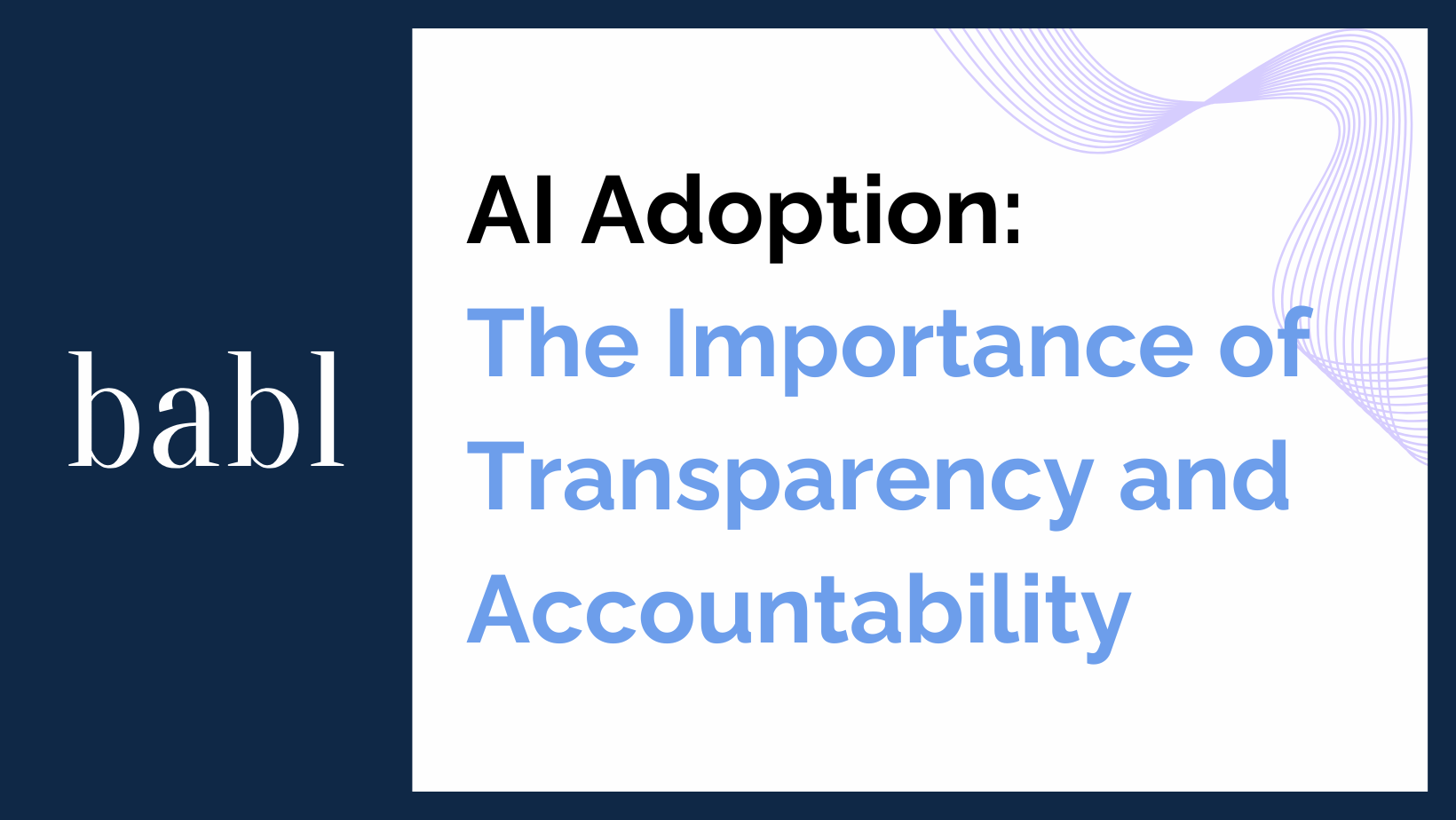In the rapidly evolving landscape of artificial intelligence (AI), transparency and accountability have emerged as critical components for fostering trust and ensuring ethical use. As AI systems increasingly influence various aspects of our lives, from healthcare to finance and beyond, businesses must prioritize these principles to maintain public confidence and avoid potential pitfalls. This blog post delves into why transparency and accountability are crucial in AI adoption, provides examples of best practices, and highlights the consequences of neglecting these essential aspects.
Why Transparency and Accountability Matter
Building Trust with Stakeholders
Transparency in AI systems involves openly communicating how these systems work, the data they use, and the decision-making processes behind them. This openness is vital for building trust among stakeholders, including consumers, employees, and regulators. When businesses are transparent about their AI practices, they demonstrate a commitment to ethical standards and invite scrutiny, which can help identify and rectify biases or errors.
Accountability, on the other hand, refers to the mechanisms in place to ensure that AI systems are used responsibly. This includes defining clear roles and responsibilities for those involved in developing and deploying AI adoption, as well as implementing policies and procedures to address issues when they arise. By being accountable, businesses show that they are willing to take responsibility for their AI systems’ outcomes, further strengthening trust with stakeholders.
Enhancing Regulatory Compliance
With the increasing regulatory focus on AI, businesses must be transparent and accountable to comply with evolving legal frameworks. For instance, the European Union’s AI Act emphasizes the need for transparency and accountability in high-risk AI systems, requiring organizations to provide documentation and risk assessments. By adhering to these principles, businesses can avoid legal repercussions and enhance their reputations as responsible AI users.
Best Practices for Transparency and Accountability in AI
- Explainability
One of the key challenges in AI is the “black box” nature of some algorithms, where the decision-making process is not easily understood. Businesses can address this by prioritizing explainability, which involves making AI decisions transparent and understandable to users and stakeholders. For example, companies can use simpler models that are easier to interpret or employ tools that provide insights into how complex models make decisions.
- Data Transparency
Data transparency involves providing clear information about the data sources, how data is collected, processed, and used in AI systems. This practice helps stakeholders understand the context and limitations of AI predictions and decisions. For instance, a company using AI for credit scoring should disclose what data points are considered and how they impact the credit score, allowing consumers to understand and potentially contest decisions.
- Regular Audits and Impact Assessments
Conducting regular audits and impact assessments is crucial for maintaining accountability in AI systems. These audits can identify biases, ensure compliance with ethical standards, and assess the overall impact of AI systems on stakeholders. By proactively addressing issues uncovered in audits, businesses can demonstrate their commitment to responsible AI use.
- Clear Communication Channels
Establishing clear communication channels for stakeholders to voice concerns or ask questions about AI systems is another best practice. This approach not only fosters transparency but also allows businesses to receive feedback and improve their AI systems continually. Companies should make it easy for stakeholders to contact them and ensure that they respond promptly and thoughtfully.
Consequences of Failing to Prioritize Transparency and Accountability
Loss of Trust
A lack of transparency and accountability can lead to a significant loss of trust among consumers, employees, and other stakeholders. For example, if a company uses AI for hiring decisions but does not disclose how the AI system works or allow candidates to contest decisions, it may face backlash and damage its reputation. This loss of trust can have long-term consequences, including reduced customer loyalty and employee dissatisfaction.
Legal and Financial Risks
Neglecting transparency and accountability can also result in legal and financial risks. Non-compliance with regulations can lead to fines and legal battles, which are costly and damaging to a company’s reputation. Moreover, biased or unfair AI systems can lead to discrimination lawsuits and other legal challenges, further exacerbating financial and reputational damage.
Missed Opportunities
Finally, businesses that fail to prioritize transparency and accountability may miss out on opportunities for innovation and growth. As AI adoption becomes more integrated into business operations, companies that can demonstrate ethical AI practices are likely to attract more customers, partners, and investors. In contrast, those that fall short may struggle to compete in an increasingly AI-driven market.
Conclusion
As AI continues to transform industries and societies, the importance of transparency and accountability in AI adoption cannot be overstated. These principles are crucial for building trust, ensuring regulatory compliance, and mitigating risks. By implementing best practices such as explainability, data transparency, regular audits, and clear communication channels, businesses can navigate the complexities of AI ethically and responsibly. Ultimately, prioritizing transparency and accountability is not just a regulatory necessity; it is a strategic imperative that can significantly impact a company’s success and reputation in the AI era.
Need Help?
If you want to have a competitive edge when it comes to AI regulations and laws, don’t hesitate to reach out to BABL AI. Their team of Audit Experts can provide valuable insights on implementing AI.





